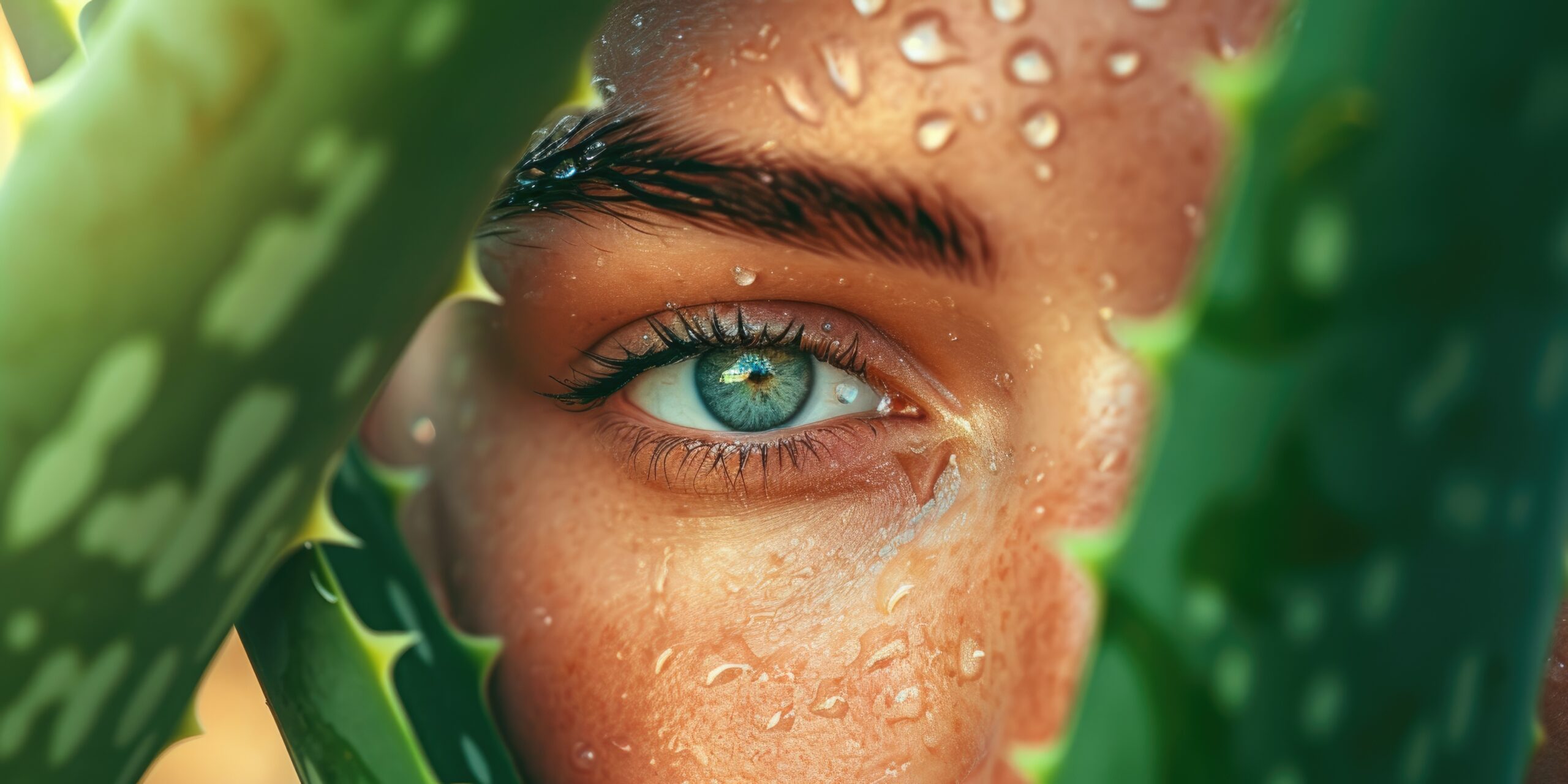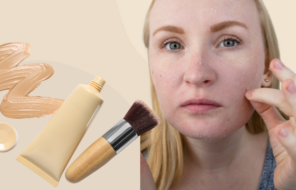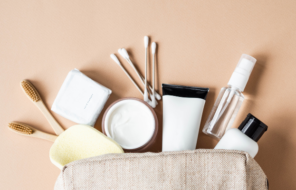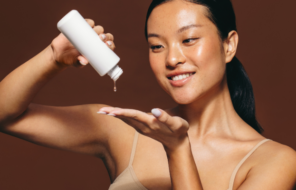Aloe vera was a staple skin remedy when I was growing up. My mom always kept a jar of that gooey green jelly in case of sunburns or bug bites, and I truly believed it was magical. These days, mainstream and organic brands alike use the plant juice and extract, often instead of water, and the result is often nice and nourishing.
In this article, I go into detail about exactly what aloe vera gel is, and what aloe vera’s benefits for the skin are, and any side effects to watch for.
What is aloe vera gel?
Aloe vera is very popular in skin care, either on its own as a gel or as a juice or extract used in skin care. The juice or gel is taken directly from the aloe vera plant, which is a type of succulent that grows well in hot or dry climates. The leaves of the plant are thick and fleshy with a dark outer skin that protects the gel inside.
The pure aloe vera gel taken directly from the plant is primarily composed of water with some polysaccharides – two ingredients that are simple yet lovely for the skin. The high water content in aloe vera is the reason why it often shows up in skincare products at high percentages, and why it often replaces water altogether.
As you may already know, water is an essential ingredient in skin care, since it makes our skin stronger, healthier and suppler. However, water doesn’t really stay in the skin on its own. That’s where the polysaccharides in aloe come into play.
Polysaccharides, when applied topically, act as humectants. They can pull moisture into the skin and help keep it there. This is why aloe vera, even on its own, is more moisturizing and soothing to the skin than plain water would be.
Then there are a few other traces of beneficial ingredients that remain, like amino acids which also have a moisture binding effect, lipids which help to soften the skin, and sterols and vitamins which have skin-soothing and antioxidant effects.
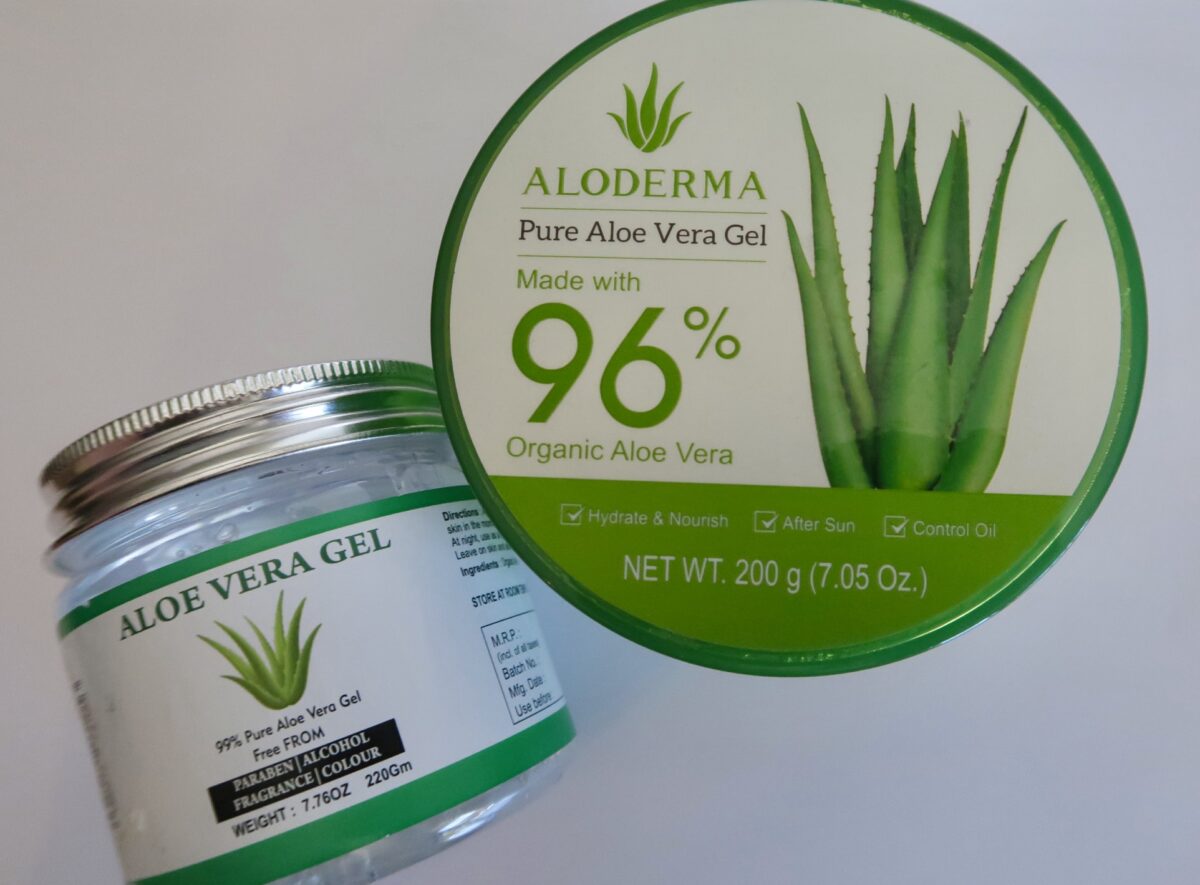
What are the benefits of aloe vera gel?
There are many benefits you’ll get using aloe vera for skin. Whether applied directly to the skin or scalp, aloe vera’s nourishing capabilities are widespread. Some benefits include:
- Moisturizing: The blend of water and polysaccharides in aloe vera means that it is wonderful to load the skin up with moisture! The polysaccharides ensure that some of that water will get into the skin and stay there. It helps to soften and soothe the skin without leaving a greasy residue.
- Soothing and Cooling: Aloe vera has natural anti-inflammatory properties, which can help calm irritated skin. It is often used to relieve sunburn, minor burns, and insect bites, providing immediate cooling relief.
- Wound Healing: Aloe vera promotes wound healing and can aid in the recovery of minor cuts, burns, and abrasions. It accelerates the healing process by stimulating cell regeneration and reducing inflammation.
- Anti-aging: Since aloe is rich in antioxidants such as vitamins C and E, it makes an excellent anti-aging product. These properties can improve skin firmness and elasticity and regular use may reduce the appearance of fine lines and wrinkles.
- Acne Treatment: Due to its anti-inflammatory and antibacterial properties, aloe vera works to reduce redness and inflammation associated with acne and prevents future breakouts.
- Scalp and Hair Conditioning: Aloe vera gel or juice can be applied to the scalp to reduce dandruff and itching. It moisturizes the scalp and promotes healthier hair growth.
- Antioxidant Properties: The antioxidants in aloe vera help neutralize free radicals in the skin, which can contribute to premature aging and skin damage.
- Skin Brightening: Regular use of aloe vera can help even out skin tone and reduce the appearance of hyperpigmentation or dark spots.
- Gentle Exfoliation: Aloe vera contains enzymes that gently exfoliate the skin, helping to remove dead skin cells and promote a smoother complexion.
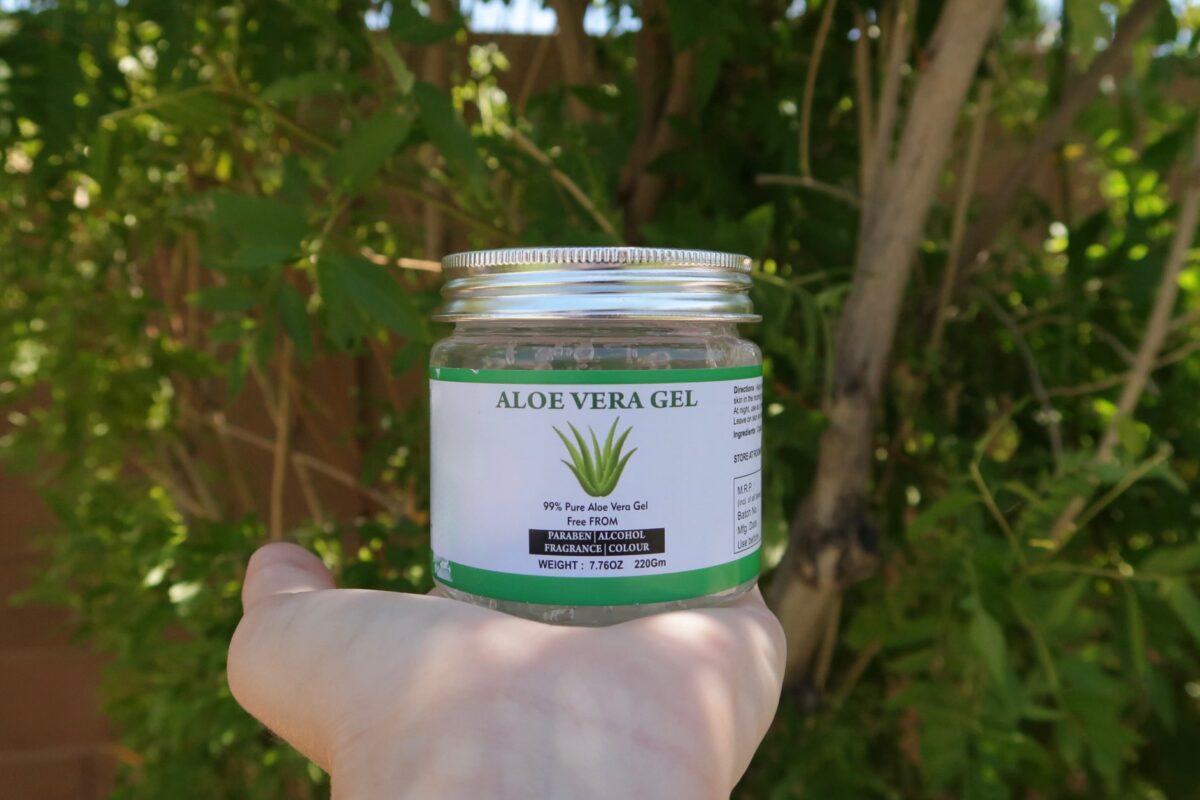
Which skin types benefit from aloe vera gel?
The beautiful thing about aloe vera for skin is that it is beneficial to all skin types. It is a mild, non-comedogenic ingredient that primarily helps to increase water content in the skin and to keep it soothed. Being that it is lightweight, gentle, and non-irritating, it is also suitable for sensitive skin. Whether you are primarily dry, oily, or have combination skin, aloe vera can be incorporated into your skincare regimen to promote healthy and radiant skin.
Does aloe vera have any side effects?
Aloe vera as it shows up in skincare products does not have any side effects for the most part. Allergies, of course, are possible with aloe vera as they are with any other natural ingredient, although they are quite rare. It’s always extra surprising when someone is allergic to aloe since it is considered a skin-soother.
If you do have an allergy to aloe vera it will probably manifest as redness, stinging, or hives. It’s always important to patch test new skincare products for a few days on the upper arm or behind the ear to check for allergies before applying it to large parts of the face or body.

